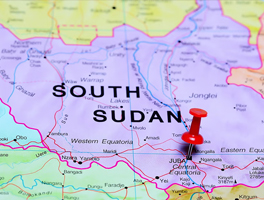 |
Dear readers,
Welcome to the Climate Weekly newsletter by the Centre for Science and Environment’s Climate Change programme and Down to Earth.
In June this year, global financial actors representing countries, international institutions and the private sector will come together at the Fourth International Conference on Financing for Development, set to be held in Seville, Spain. Among the crucial issues to be discussed is how international finance can support sustainable development in the Global South. In view of the upcoming summit, a group of experts released a crucial report addressing the major economic and financial challenges faced by developing countries. In my article, I highlight the key recommendations provided by the experts as they advocate for global finance to move away from risk-averse short-termism towards transformative and inclusive financial approaches for sustainable development.
Some of the important recommendations include international tax cooperation to fairly tax corporations and disincentivise natural resource exploitation, increasing the lending capacities of multilateral development banks, increasing (and institutionalising) development aid commitments from developed nations, and integrating climate, biodiversity and development priorities. The expanding public debt burden in developing economies is another concern, with calls for improved debt restructuring mechanisms and utilising innovative instruments like green bonds and debt-for-nature swaps. Finally, the report underscores the need for a global financial safety net to lessen the impact of economic crises in developing countries.
Continuing with the world of finance, Indian policymakers are considering the implementation of the Renewable Energy Financing Obligation (REFO), a mechanism to ensure that financial institutions allocate a fixed portion of their lending portfolios to renewable energy projects. India’s renewable energy target of achieving 500GW by 2030 requires roughly Rs. 33 lakh crore, and significant financing gaps exist. By securing dedicated financing, REFO can help accelerate India’s clean energy transition by mobilising dormant capital and de-risking investments. Under this policy, banks, non-banking financing companies and institutional investors will be required to allocate 5-15 per cent of their annual lending towards solar, wind, green hydrogen and energy storage. The potential impact of REFO includes lowering of borrowing costs for renewable energy projects and, thereby, making renewable energy more competitive than fossil fuels.
Lastly, a study published in the journal Nature has highlighted how climate change is worsening water scarcity in some parts of the world, while easing scarcity in other regions. India, for instance, will witness increasing water scarcity, while countries like Nigeria and Sudan will likely see improvements—owing to the changing nature of precipitation. An increase in water scarcity will further lead to increasing conflicts and regional tensions, especially in politically sensitive zones.
|
|
 |
| |
 |
|
| |
 |
 |
| |
By - Upamanyu Das
Climate Change, CSE
|
| |
|
 |
|
|
| |
 |
|
| |
| EXTREME WEATHER TRACKER |
| |
Extreme heat in South Sudan in February 2025 was at least 2°C hotter, 10 times more likely due to human-induced climate change: WWA study, 12 March 2025
|
 |
 |
|
|
| |
 |
|
| |
 |
 |
Carolina wildfires followed months of weather whiplash, from drought to hurricane-fueled floods and back to drought, 07 March 2025
|
|
|
| |
 |
|
| |
|
|
| |
|
|
| |
|
|
| |
 |
|
| |
CLIMATE NEWS | SCIENCE| IMPACTS| POLITICS |
|
| |
 |
|
| |
|
|
| |
 |
|
| |
|
|
| |
 |
|
| |
|
|
| |
 |
|
| |
|
|
| |
 |
|
| |
|
|
| |
 |
|
| |
|
|
| |
 |
|
| |
|
|
| |
 |
|
| |
|
|
| |
 |
|
| |
|
|
| |
|
|
| |
|
|
| |
|
|
|